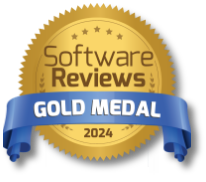A study found that 40% of customers prefer to find answers using a self-service option, rather than through human interaction. With your employees being your internal customers, this can be done through a knowledge base. This goldmine of information not only saves time but increases productivity by eliminating the tedious task of searching for information that should be at your fingertips.
With its popularity as a collaborative tool, it’s no wonder that most companies have had to build a knowledge base in Microsoft Teams. While there’s no specific feature for this, making use of platforms such as Convene in Teams takes the guesswork out of the process. Below are the benefits and challenges of a Microsoft knowledge base and how Convene in Teams simplifies matters.
What is a Knowledge Base?

A knowledge base is a treasure trove of information relating to a company’s products or services that equip employees to perform their tasks. The solution to any task question, query, problem, or issue should be found in this centralized database. It can contain a variety of formats, from video tutorials and FAQs to white papers and articles. The point of a knowledge base is for the team to have easy access to the information they need to do their jobs. One study also found that a good knowledge base increases innovation-driven growth.
The Advantages and Disadvantages of a Microsoft Knowledge Base
Microsoft Teams users won’t find a specific integrated facility to see to their knowledge base needs. As such, many turn to SharePoint. Touted as a “secure place to store, organize, share, and access information”, SharePoint has both benefits and drawbacks. Here are some of them:
Pro: Improved collaboration
A Microsoft Teams knowledge base helps team members to share and access information more easily by permitting easy uploads to a document library with simple share options as well as allowing teams to work on the same document at the same time.
Con: Limited accessibility
Depending on the configuration of the knowledge base, it may not be accessible to all team members or external stakeholders.
Pro: No extra costs
A Microsoft knowledge base with SharePoint means you don’t have to spend more to have a basic knowledge base at your disposal. Smaller businesses with limited resources benefit from this.
Con: Limited search capabilities
Most knowledge bases include information in various forms. From spreadsheets to PDFs to presentations, the sources cross platforms and formats. Unless you have the time and resources to create a Wiki library, there’s no way to index this information — searching for the data you need becomes virtually impossible.
Pro: Improved accuracy
By centralizing information in a Microsoft Teams knowledge base, it becomes easier to ensure that team members are using the most accurate and up-to-date information.
Con: Potential for outdated information
If the knowledge base is not regularly updated, it can contain outdated information that may not be accurate or relevant.
Pro: Improved organization
A Microsoft knowledge base can help team members stay organized and easily locate important information.
Con: SharePoint is not a knowledge base
SharePoint is a document management tool. While it provides secure storage for documents, it doesn’t function as a knowledge base. A knowledge base has the ability to help its users accomplish their tasks and troubleshoot their problems. SharePoint may have the information they require but not necessarily the map they need to access it.
CiT: Your Knowledge Base in Teams
As we’ve mentioned, Microsoft Teams does not have a specific feature for knowledge bases. Convene in Teams allows you to create a document library with a centralized and secure repository. Seamless integration with OneDrive and SharePoint means you can access your 4Ds (documents, discussions, decisions, and deliberations) on a single platform.
Another great feature CiT offers in a Microsoft Teams knowledge base is a search function. You no longer need to trawl through files and files of information — simply type what you’re looking for into the search bar at the top of Teams. The software performs a scan through all the chats, threads, files, and people in your organization to find what you’re looking for. In its thoroughness, it even searches annotations, actions, and votes.
Combine these features with the fact that you can be absolutely certain that the version of the document you’re pulling is the most recent. As a single centralized repository, your Microsoft knowledge base ensures that you’re reading the latest version of your document. With amendments only being done to a single file, administrators can do away with the need to design a naming convention for the following versions of a file.
Rounding Microsoft Knowledge Base with Convene in Teams

With the right software, a knowledge base in Microsoft Teams can provide your team with the information they need when they need it. Convene in Teams combines a multitude of Microsoft apps into one cohesive platform. From providing a central access point for information to in-depth searches for important data to the most recent version of documents, CiT organizes your processes and amps up your productivity.
On top of this, Convene in Teams offers security measures to keep your documents safe. A single repository means there’s limited access, with only authorized users having access to confidential information.
Keen to build a knowledge base in Microsoft Teams? Then learn more here about how Convene in Teams can smooth the way to a comprehensive Microsoft knowledge base.
Audrey is a Content Marketing Specialist at Convene, in charge of managing the production of quality content on the company’s website. A communication major keen on marketing, Audrey has been constantly seeking approaches to create tailored content—may it be about governance, digitalization, boards, or meetings—fit for the stakeholders. When not strategizing on the next ebook to produce, Audrey finds solitude in reading make-you-ugly-cry novels and listening to self-improvement podcasts.










